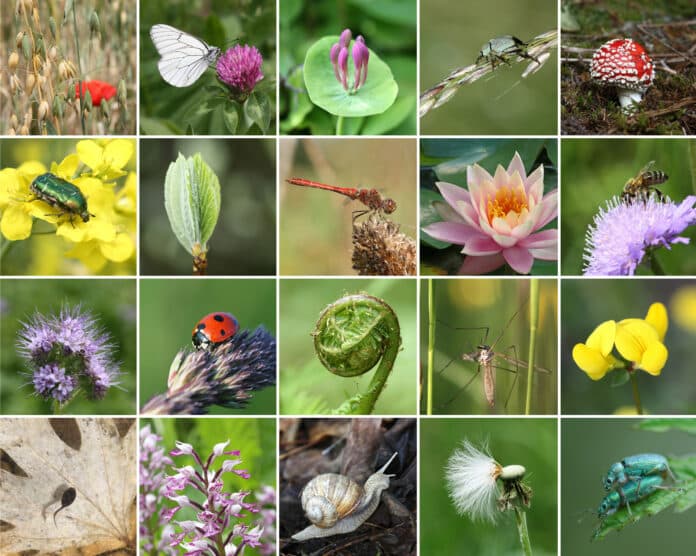Green spaces across Bournemouth, Christchurch and Poole are benefitting from an increase in biodiversity due to BCP Council’s change in grass management. Areas of grass have been cut less frequently this year allowing an abundance of wildflowers to thrive across the conurbation.
This trial was agreed by Cabinet last year and has seen the establishment of grass meadows in open spaces and on roundabouts and verges, some of which are now displaying a profusion of colour. Reducing the frequency of mowing helps to increase biodiversity by creating conditions that support a range of plants and wildlife, in particular pollinators which have suffered widespread decline.
Bee Orchids which had previously been lying dormant for years, have now been spotted in Christchurch and in numerous locations across Poole, while the Pyramidal Orchid has also been seen across Poole, in Mudeford and on the cliffs in Boscombe. The Bee Orchid looks like a bee to attract pollinators but in the UK they are largely self-pollinating plants, so the deception is not required. The fact that the plant is also uncommon and rather unusual adds to its appeal. Several species of butterflies as well as the rare Southern Damselfly and other pollinating insects have also been seen using these areas as part of this ongoing trial, the grasses themselves being important foodplants for a number of butterfly species, such as the Meadow Browns and Gatekeepers.
Councillor Mark Anderson, Portfolio Holder for the Environment, Cleansing and Waste commented:
“After creating green deserts for so many years, this trial is one that I fully support and it’s great to hear that these orchids have been given the chance to flower and reproduce, along with an array of other wildflowers and various insects
“Managing our grassland habitats sympathetically can provide massive benefits, increasing biodiversity as these meadows attract and support a range of species, as well as increasing carbon capture and creating a variety of colours and textures across the area. We are passionate about leading our communities towards a cleaner, sustainable future and this trial helps enormously towards this priority.”
Schoolchildren from Merley, where almost 40 Bee Orchids were spotted, worked with the Merley Nature Group to raise awareness of the flowers and the benefits of wildflowers and pollinators by creating posters to put up around the Bee Orchids.
Mrs Anstey, Headteacher of Merley First School commented:
“Our Eco Warriors are passionate about the environment and were delighted to see how many Bee Orchids there were in an area where the grass has been left to grow. They have been working closely with the Merley Nature Group to raise awareness of these beautiful flowers and the benefits of wildflowers and pollinators in general by creating some really eye-catching posters to display around the flowers.”
This new grass management trial will inform the future approach with ongoing reviews, including overwintering provision, taking place. Overwintering is the process of keeping plants or animals in a particular place during the winter as many species overwinter as pupae and larvae in the long grasses, and this lifecycle requirement needs to be considered in order to see the maximum benefits.
Councillor Anderson continued:
“This work is likely to be ongoing over a number of years with different methods and practices being trialled based on our continued learning. We are undertaking frequent reviews to inform this approach and this will enable us to assess the best way to manage our grass areas to achieve our aims.”
This trial falls under the council’s Cleaner, Greener, Safer initiative that aims to bring a sense of pride to our place, with other green initiatives including the council’s pledge to plant over 10,000 trees in 2021.
Let it Grow’ signs are currently being placed across the conurbation to explain why the grass is being left to grow longer. For further information, please visit the council’s grass cutting webpage.
PLEASE SUPPORT US FOR JUST £2 A MONTH







